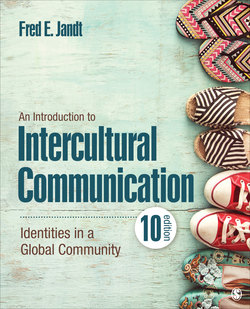Читать книгу An Introduction to Intercultural Communication - Fred E. Jandt - Страница 70
На сайте Литреса книга снята с продажи.
Focus on Culture 2.1 Identity Ethics
ОглавлениеIn 2012, Elizabeth Warren (originally from Oklahoma of working-class upbringing) was elected the first woman to the U.S. Senate from Massachusetts. During her career as a Harvard Law School professor, she had listed herself as Native American in law school directories. Challenged to provide proof of her ancestry by her Republican opponent, Warren said her family lore was that she had an Indian ancestor.
President Donald Trump often mocked Warren’s claims of Cherokee heritage, referring to her as “Pocahontas.” She later did DNA testing to prove her ancestry. The results suggested she did have a distant American Indian ancestor in her lineage dating back 6 to 10 generations.
It was later revealed by the Washington Post that she had claimed American Indian as her race on a registration card for the State Bar of Texas. In response, Senator Warren apologized for claiming American Indian identity privately to the principal chief of the Cherokee Nation and later publicly.
The secretary of state of the Cherokee Nation wrote in an opinion column in the Tulsa World that culture and kinship create tribal membership—not blood. “It offends us when some of our national leaders seek to ascribe inappropriately membership or citizenship to themselves” (Hoskin, 2019).
Are there global values to guide intercultural interactions? Kale (1997) argues that peace is the fundamental human value. The use of peace applies not only to relationships among countries but to “the right of all people to live at peace with themselves and their surroundings” (p. 450). From this fundamental value, he developed four ethical principles to guide intercultural interactions:
1 Ethical communicators address people of other cultures with the same respect that they would like to receive themselves. Intercultural communicators should not demean or belittle the cultural identity of others through verbal or nonverbal communication.
2 Ethical communicators seek to describe the world as they perceive it as accurately as possible. What is perceived to be the truth may vary from one culture to another; truth is socially constructed. This principle means that ethical communicators do not deliberately mislead or deceive.
3 Ethical communicators encourage people of other cultures to express themselves in their uniqueness. This principle respects the right of expression regardless of how popular or unpopular a person’s ideas may be.
4 Ethical communicators strive for identification with people of other cultures. Intercultural communicators should emphasize the commonalities of cultural beliefs and values rather than their differences.
Developing ethical principles to guide intercultural interactions is a difficult task. Even though Kale’s principles may be more acceptable in some cultures than in others, they are certainly a beginning step.
